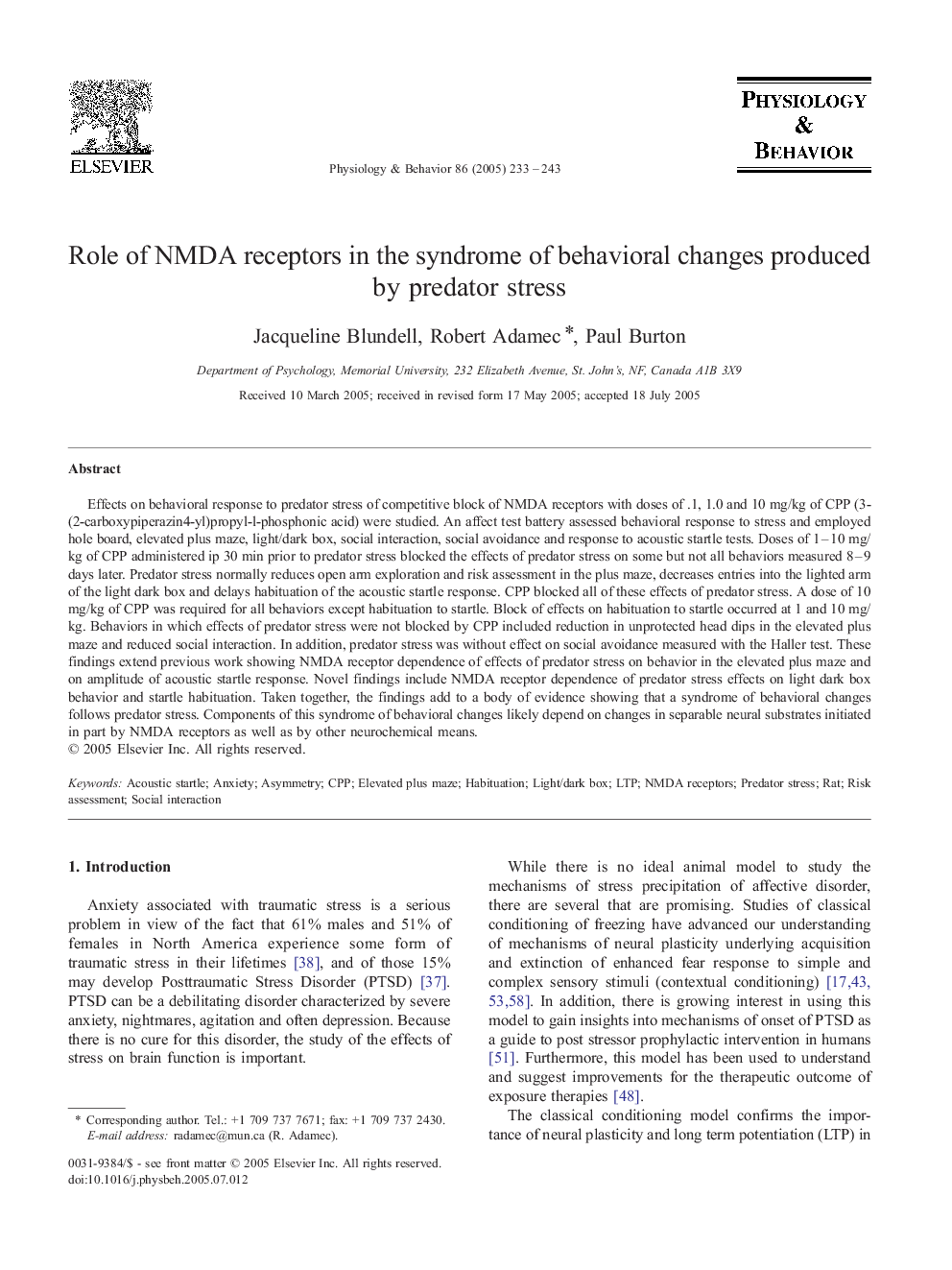| Article ID | Journal | Published Year | Pages | File Type |
|---|---|---|---|---|
| 9150061 | Physiology & Behavior | 2005 | 11 Pages |
Abstract
Effects on behavioral response to predator stress of competitive block of NMDA receptors with doses of .1, 1.0 and 10 mg/kg of CPP (3-(2-carboxypiperazin4-yl)propyl-l-phosphonic acid) were studied. An affect test battery assessed behavioral response to stress and employed hole board, elevated plus maze, light/dark box, social interaction, social avoidance and response to acoustic startle tests. Doses of 1-10 mg/kg of CPP administered ip 30 min prior to predator stress blocked the effects of predator stress on some but not all behaviors measured 8-9 days later. Predator stress normally reduces open arm exploration and risk assessment in the plus maze, decreases entries into the lighted arm of the light dark box and delays habituation of the acoustic startle response. CPP blocked all of these effects of predator stress. A dose of 10 mg/kg of CPP was required for all behaviors except habituation to startle. Block of effects on habituation to startle occurred at 1 and 10 mg/kg. Behaviors in which effects of predator stress were not blocked by CPP included reduction in unprotected head dips in the elevated plus maze and reduced social interaction. In addition, predator stress was without effect on social avoidance measured with the Haller test. These findings extend previous work showing NMDA receptor dependence of effects of predator stress on behavior in the elevated plus maze and on amplitude of acoustic startle response. Novel findings include NMDA receptor dependence of predator stress effects on light dark box behavior and startle habituation. Taken together, the findings add to a body of evidence showing that a syndrome of behavioral changes follows predator stress. Components of this syndrome of behavioral changes likely depend on changes in separable neural substrates initiated in part by NMDA receptors as well as by other neurochemical means.
Keywords
Related Topics
Life Sciences
Biochemistry, Genetics and Molecular Biology
Physiology
Authors
Jacqueline Blundell, Robert Adamec, Paul Burton,
